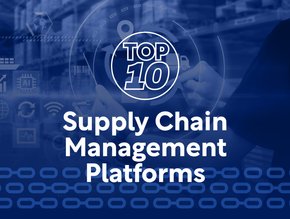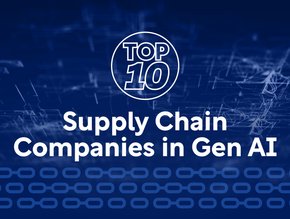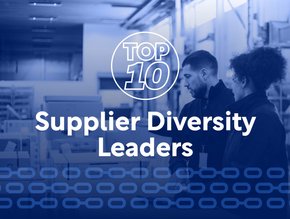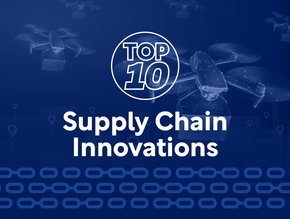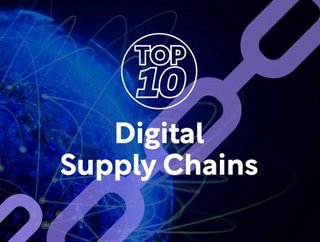
Digital transformation projects have an astonishingly high fail rate of around 70%, according to McKinsey, and so transformation success stories have much to teach the wider world of industry and commerce.
Of course, no one sets out to fail, and well-intentioned management teams generally know what needs to be done.
Yet transformation journeys are hugely exacting, and efforts often fall by the wayside before they even get off the ground.
But not always. Well-executed digital transformations tend to be delivered by companies who:
- Set fact-based goals that aim high
- Communicate compelling reasons to employees why change is necessary (it’s not just about the bottom line).
- Execute well, by remaining laser-focused on outcomes.
- Make swift and difficult ‘people decisions’.
Such supply chains not only drive growth but also develop supply chain risk management capabilities, which bring the resilience needed for rapid recovery from supply chain disruptions and the ability to anticipate and avoid yet unseen risks.
The following are 10 businesses whose digital transformations are among the 30% that are success stories.
10. L'Oréal
CEO: Nicolas Hieronimus
During Covid, France-based L’Oréal – one of the world’s leading cosmetics companies – saw digital sales in China grow double-digits, and other key zones, including North America and Europe, grew sales by double- and single-digits, respectively. Like Walmart, L'Oréal’s market is changing, and so it is reflecting this in its strategy.
As a result L’Oréal is changing the face of the beauty industry by modernising its digital infrastructure. It has done so by seeking to bridge the physical, digital and virtual worlds, to produce “augmented retail beauty experiences”. “In a hyper-creative and dynamic industry, bringing data science and technology into the equation was high on our strategic agenda”, the company has said.
09. Pfizer
CEO: Albert Bourla
Pfizer expects 2024 revenues to be around the $61bn mark, making it the world’s ninth largest pharmaceutical company. Its mission is to “drive breakthroughs that change patients’ lives”, and as part of that it’s undertaking a business transformation that is helping it become “a leaner, more science-driven and patient-focused organisation”. Digital, it says, “is playing a part in almost every aspect of how we’re achieving that transformation”.
08. Colgate-Palmolive
CEO: Noel Wallace
Multinational manufacturer and distributor of household and personal-care products Colgate-Palmolive (CP) is undergoing a digital transformation that the company says is “foundational in how we meet our 2025 growth goals''. To this end it is harnessing the “power of digital to enable and connect our 34,000 global employees across the globe”.
The transformation involves:
- Automation across CP’s operations
- A ‘measurement ecosystem’, to produce clear KPIs and ROI
- A new agile vendor partnerships model designed to advance CP’s business goals
07. Microsoft
CEO: Satya Nadella
Microsoft’s Digital Employee Experience (MDEE) team is building and operating the systems that run the company, and is leading the company’s internal digital transformation.
It is doing this by rethinking traditional IT and business operations, and by driving innovation and productivity for its 220,000 employees worldwide.
The company says digital transformation is improving its ability to “empower our employees, engage our customers and partners, optimise our operations and transform our products”.
06. Cisco
CEO: Chuck Robbins
US-based multinational tech company Cisco specialises in networking hardware, software, and services. Its three-year digital transformation – which it dubs ‘Cisco.com Reimagined’ – is helping create digital customer experiences that showcase innovation and drive growth.
The company is also fuelling the widespread digital transformation of its customers’ supply chains by making digital transformation and hybrid cloud its top areas of spend – something that is fueling growth across its portfolio.
05. Johnson & Johnson
CEO: Joaquin Duato
J&J is the world's largest pharmaceutical, medical devices, and consumer products healthcare company, and is currently moving away from legacy systems and vendor-dependencies to build a ‘technology stack’ designed both to improve the customer experience and also to find new business opportunities.
At the heart of its transformation are open-source IoT platforms that arte driving innovation and agility, both in product development and supply chain processes, and that are delivering better-quality products to patients and providing superior patient outcomes. Thanks to its digitalisation, J&J has reduced product release times from an average of 35 days to just two hours.
04. PepsiCo
CEO: Ramon Laguarta
PepsiCo is undergoing a digital transformation that has seen it move 5,000 applications to Microsoft Azure as it applies predictive analytics, AI, robotics, and process automation in many of its business operations.
Currently two-thirds of the way into its five-year digital transformation, PepsiCo has, crucially, won employee buy-in. It says this because “one way or another every associate in every plant, data centre, data warehouse and store are using a derivative of this transformation”.
03. Walmart
CEO: Doug McMillon
Walmart continues to focus on infrastructure and e-commerce investments, as it responds to the strong likelihood that ever-more shoppers will migrate online. To this end, in 2022 the company invested $7.2bn in supply chain, omnichannel and technology.
It is hugely ambitious, because Walmart admits that at present the vast majority of its overall profits are down to in-store bricks-and-mortar trade. However, being ahead of the curve is what helps businesses like Walmart eclipse the competition, and it predicts that in five years its income stream will be much less dependent on physical locations, with revenue growing from e-commerce, including marketplaces that offer third-party merchandise.
02. Schneider Electric
CEO: Peter Herweck
Schneider Electric operates five supply chain models that reflect the needs and expectations of its various customer segments. These include electrical distributors, integrators and end-users.
The company says digitalisation “provides the answer to building a customer centric supply chain”, and that unless operating processes are connected “systems and tools cannot truly support the needs of customers or the business to provide one version of the truth”.
Connectivity, it says, “allows us to control, monitor, and optimise every part of the process, and creates the desired end-to-end view, which can be visualised at unified operating centres located at key points around the world, to provide on-site, real-time knowledge driven by data analytics”.
01. The Heineken Company
CEO: Dolf van den Brink
Heineken Europe recently completed the transformation of its supply chain across the region. Europe is a massive region for the company, where it has 25 operating companies. In transforming its European supply chain it targeted four areas: Simplifying the complexity of its product and packaging; Leveraging its network of operating companies; improving and harmonising its way of working; designing low-carbon footprint operations
The transformation has delivered a 52% reduction in the volume of unique bottles used by the company, and also cut by 50% the amount of secondary packaging it uses.
Perhaps most significantly, it has gone from having 25 supply and operations planning teams to just one.
On sustainability, meanwhile, it has cut carbon emissions in production by 24% compared to 2018 levels.
- Arvato & Microsoft: Developing the Warehouse of the FutureDigital Supply Chain
- KPMG International: The Biggest Risks Hitting BusinessesSupply Chain Risk Management
- GEP Unveils AI-Powered Total Orchestration SolutionDigital Supply Chain
- Why Rail and Intermodal Remain Integral to Supply ChainsLogistics

